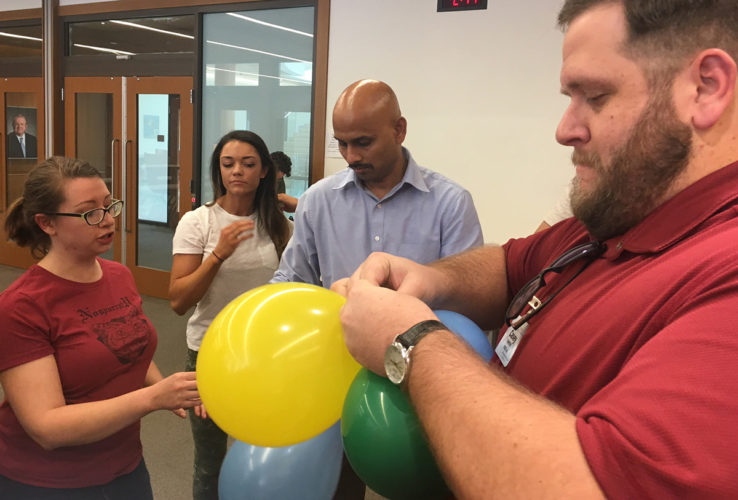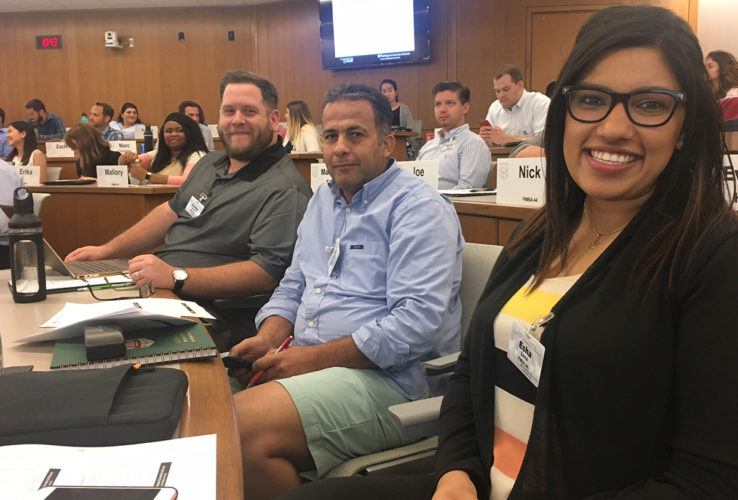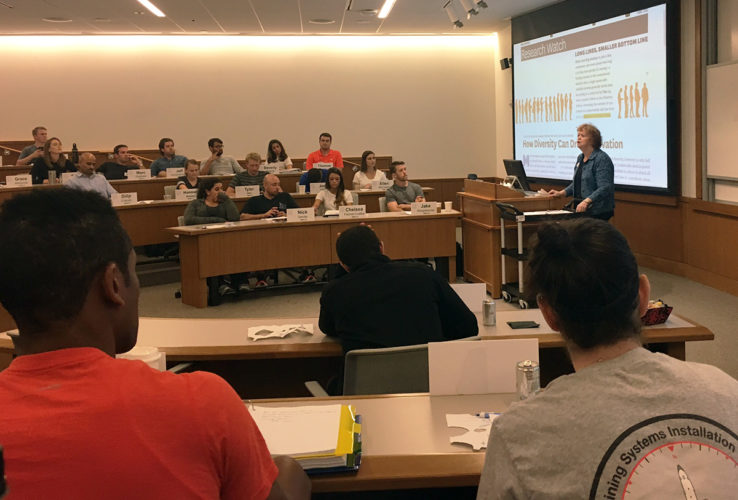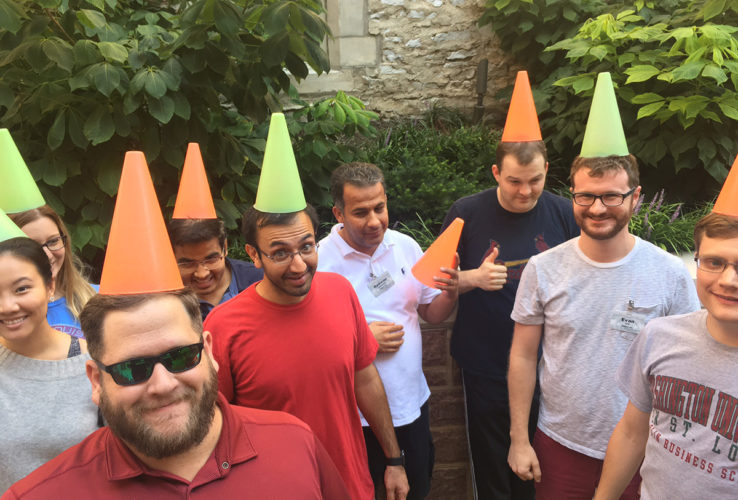Last weekend was PMBA GO! As a newly-minted member of PMBA 44, I discovered I had a lot to learn.
I work in Olin’s Marketing & Communications Department, behind-the-scenes of Olin’s social media presence and the blog and website. Luckily, I work for a university that is very supportive of staff continuing their education. Even luckier, I work at one of the top-ranked business schools in the country.
Enrolling in the Professional MBA program was intimidating, but thrilling. Having conquered GO! Weekend, I have a better idea of what I hope to get out of the program, and where I am now.

My framing and conceptualization of problems is narrow
This was a surprising discovery for me, but I suppose that was the point of reading hours’ worth of case studies. The benefit of participating in class discussion about cases is that you become aware of holes in your logic. Some of the potential solutions (or issues) my peers were raising simply did not occur to me, and vice versa.
As a cohort we spent a lot of time learning about problem formulation and its importance in critical thinking. The more we improve at problem formulation—arguably the most important step in critical thinking, since a great solution to the wrong problem is still the wrong solution—the better we become at taking a step back and looking at the situation from a new perspective.

It’s okay that I don’t have a background rooted in finance and statistics
My educational background is in journalism, and the bulk of my business experience is in marketing. To say that I was a little hesitant about diving into an MBA program with some of the region’s up-and-coming business leaders is an understatement. But I also knew that Olin has positioned itself as a safe environment for industry- and career-changers.
I have a lot to learn when it comes to quantitative decision making, statistics, and accounting…or operational management, strategic management, and economics. Really, I just have a lot to learn. There is a steep learning curve for me, but it seems much more manageable than I feared it would be. Plus, I bring other skills to the table that can be as valuable in pitching someone on an idea or getting buy-in. Prof. Tarek Ghani said the cohort, like any other MBA group, could be split into categories of “poets” and “quants.” I am very much in the “poets” category.
Yes, GO! Weekend is pretty intense
Don’t let the pics of team building fool you! GO! Weekend is a lot of work. The main component of the PMBA program that can make the workload seem so daunting is the fact that nearly all of the students are employed full-time. We weren’t gently eased into case studies and writing recommendations—we were told to drink from the fire hose immediately. I never imagined myself spending the amount of time I spent calculating, analyzing, and writing a 300 word recommendation. It’s difficult, but the challenge is also exciting.

Teams are organized for diversity—and it is very beneficial
I’m on a core team of four, and we come from different backgrounds: chemical engineering, operations, finance, and marketing. The diversity of experiences and thought has already been helpful to broaden my thinking toward certain cases and the way I approach them. The PMBA program does this intentionally, because everyone can learn from how things are done in other industries, and differing skillsets complement each other. But the entire class has a richness of perspectives and ideas to share, which really augments lectures and class discussion.
I’m looking forward—with excitement but also a little anxiety—to the coming months. I feel like I’ve already experienced an evolution in my thinking (although I certainly have a ways to go), and it has been three days! Where will I be at the end of these three years?




